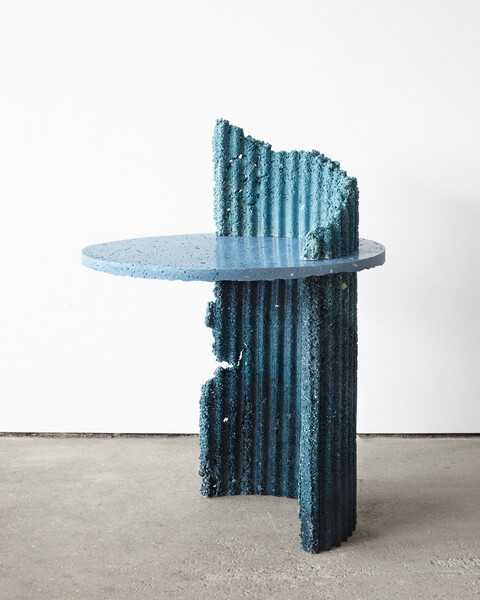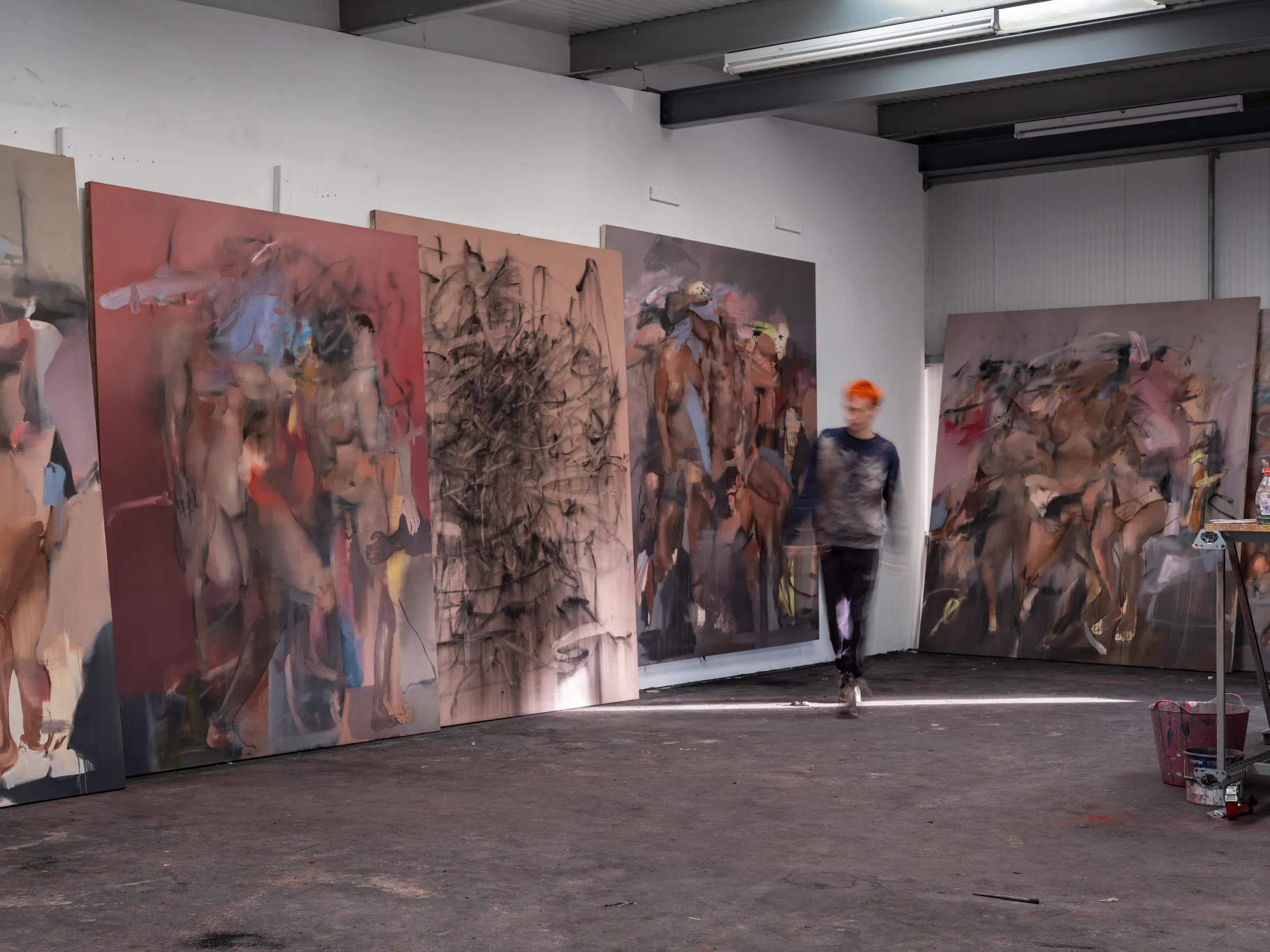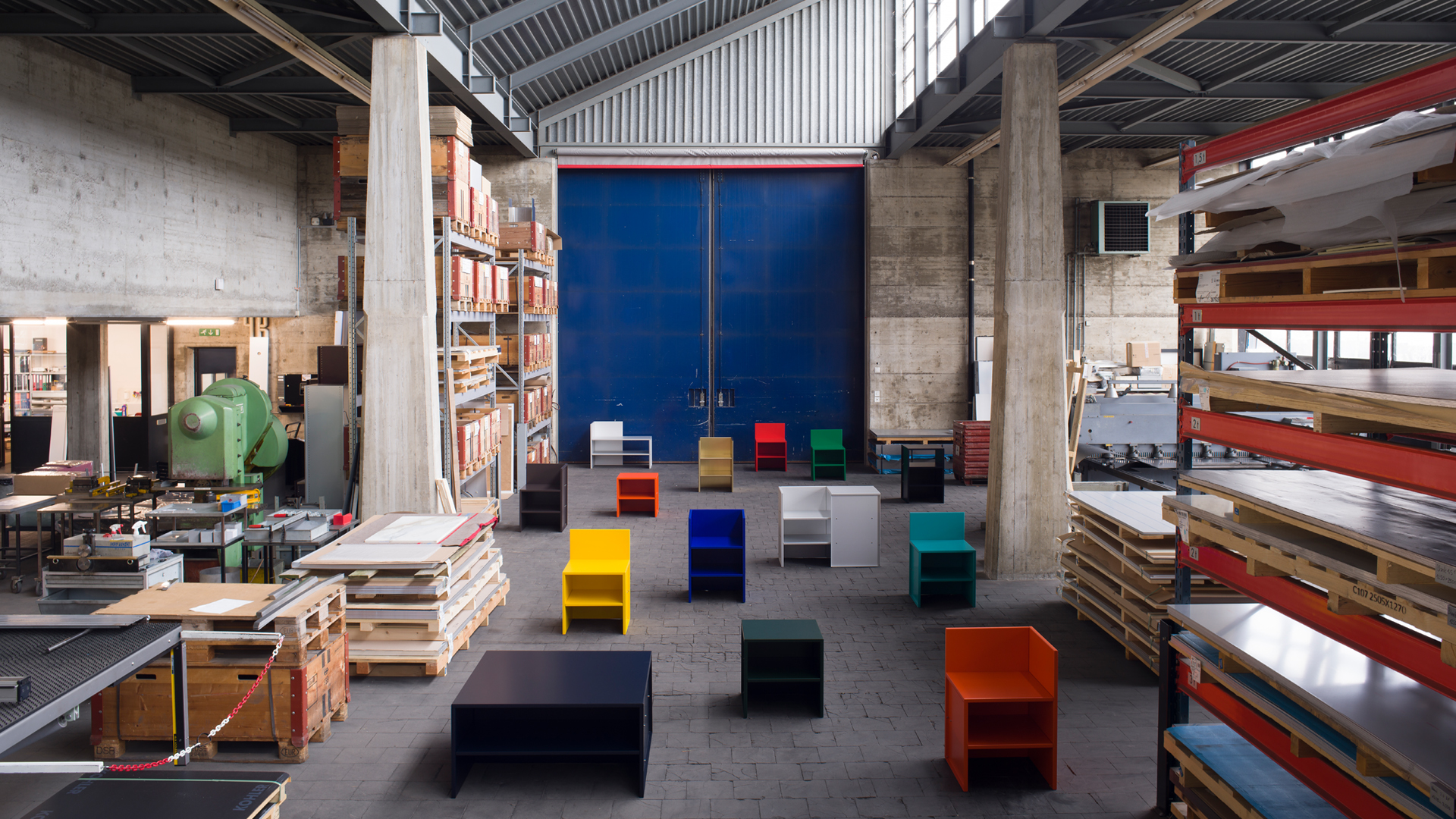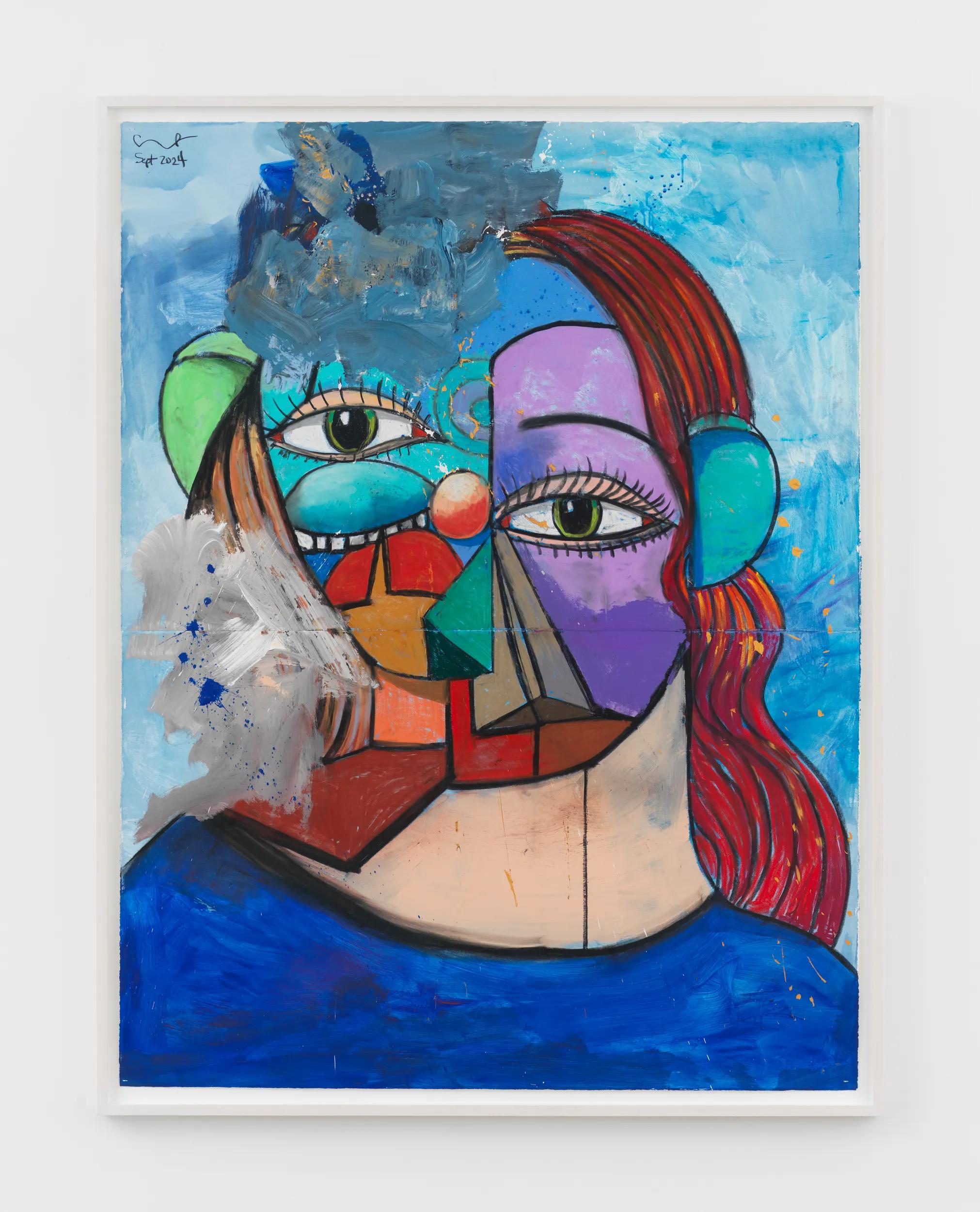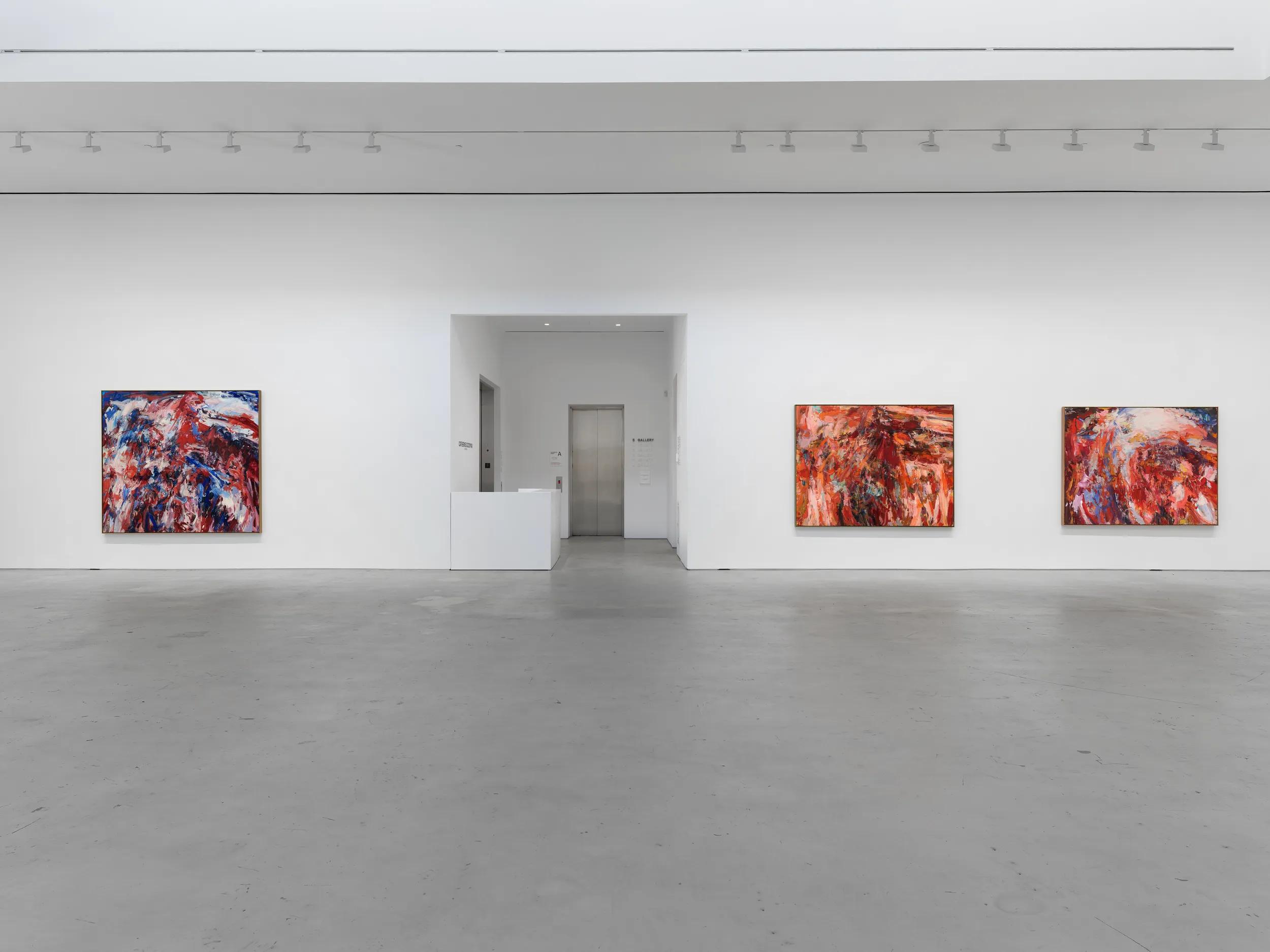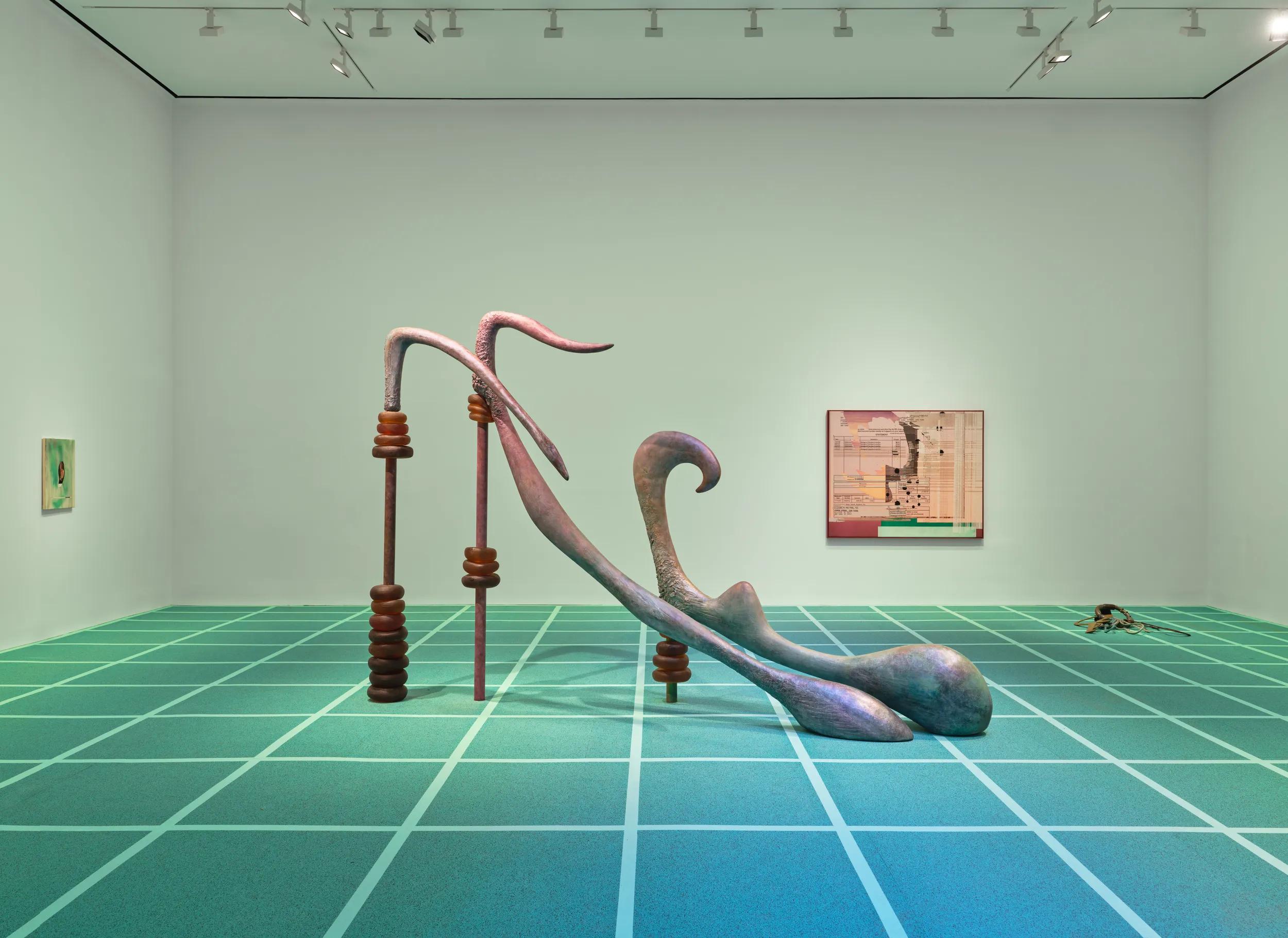
Re.Use, Re.Think, Re.Imagine
19 Oct - 1 Jan 2020
Opens on Friday 18 October 2019, 6 – 8 pm
Make, Somerset
About
The exhibition presents the work of seven UK-based experimental artists and makers, whose practice explores unique responses to materials and process. The group exhibition will feature new and existing works, spanning glass, ceramics, found objects, textiles and furniture. Whether repurposing, recycling or innovating, each of the makers are challenging traditional conceptions of craft and functional design. Visitors will journey through a reimagined material landscape, from Juli Bolaños-Durman’s multifaceted glass sculptures to Charlotte Kidger’s 3D polyurethane foam hybrids and Lola Lely’s ‘Potluck’ solid timber stool series. At the core of the makers’ shared vision is an interrogation and consciousness of materials, whilst continuing to employ conventional techniques and methods. The exhibition provides an opportunity to consider our future craft heritage, whilst reflecting on the makers’ awareness of material use and our changing urban and rural environments.
Makers featured within the exhibition include: Juli Bolaños-Durman, Aimee Bollu, Gavin Keightley, Charlotte Kidger, Lola Lely, James Shaw and Alice Walton.
Juli Bolaños-Durman
Luxurious hand-cut details transfigure abandoned glass in Juli Bolaños-Durman’s series of multifaceted sculptures, inviting the viewer to delve into an enchanting world of second chances, repurposing found objects and transforming them into precious artefacts. The sculptures embody the rich, raw and bountiful aesthetic of wild flowers and the natural environment we are surrounded by. Bolaños-Durman is known for facilitating the transformation and reimagining of waste material, driven by an ever increasing concern for the quantity of waste we produce as consumers. The works on view were conceived by deconstructing discarded glass, reconfiguring the elements through play and embellishing through decadent layers of hand-cut details.
Aimee Bollu
Aimee Bollu is a collector, an assembler of materials and a creator of hybrid objects. She responds to the overlooked and under-appreciated, highlighting their inherent qualities and challenging our preconceptions. Working exclusively with disregarded objects combined with ceramics, she sees infinite potential in the combinations of colours, surfaces and textures. Bollu’s objects delight in the possibilities of the permutations and the surprise in the simultaneous presentation of materials. Through incorporating found elements and newly made ceramic vessel forms, the disregarded items become meaningful once more and possess a new value.
Gavin Keightley
Gavin Keightley is a designer-maker with a passion for process-led design. His enthusiasm for making was born from a strong belief in developing manual skills, investigating unexplored and undervalued methods to reveal new and innovative results. Each project begins with a lengthy experimental phase, celebrating the journey of making and encouraging an understanding for the importance of hand-made design. For the exhibition, Keightley will present a collection of furniture cast in Jesmonite, with components made using moulds fabricated from food: a cabinet constructed with couscous, stools with legs made from layers of sliced bread and tops formed with mashed potato and agar jelly.
Charlotte Kidger
Charlotte Kidger’s practice has focused around utilising plastic waste streams associated with CNC fabrication. As a by-product after the milling process, a lightweight polyurethane foam dust is left in abundant volumes with no means of disposal, other than through incineration or landfill. Kidger set out to find ways of utilising and repurposing this problematic material. Through rigorous and playful experimentation and a unique material combination, Kidger has achieved a durable and versatile composite material that has the capabilities to be cast in diverse 3D forms of various sizes. The simple forms seen within this body of work derive directly from the industrial environments in which the materials were sourced, placing the focus on the material itself which was previously so easily discarded.
Lola Lely
Storytelling, heritage and a respect for craft are fundamental elements in Lola Lely‘s work, whilst continuing to experiment with colour, material, form and space. For this exhibition, Lely has taken inspiration from the traditional Korean technique, known as Bojagi, which involves the configuration of randomly sized scraps of ramie cloth to form larger patchwork textile artworks. Handwoven pineapple cloth is combined with smaller pieces of hand-stitched and naturally dyed off-cuts from the same cloth. Dyed using elements such as iron, weld, madder and walnut husk, these geometric compositions are evocative of landscapes. In addition to the textile artworks, Lely will be presenting a collection of her ‘Potluck’ stools series. Turned on a very large lathe the ‘Potluck’ stools are made from solid timber. Once the stool bases are formed, Lely works in a similar way to a painter, using the stools as three-dimensional canvases. The result is a unique handcrafted object that combines form with function.
James Shaw
James Shaw runs a design studio in London working on projects that interrogate the material, systemic and formal approaches to the creation of objects. His investigations have attempted to challenge the notions of waste, reassess the materials we currently use and attempt to originate materials, including an entirely new plant-based mouldable bio-plastic material. For this exhibition, Shaw will present several strands of investigation, including the ‘Swivel Party’ project, a series of chairs based on the typology of the office swivel chair. The series uses a palette of materials directly borrowed from this typology - polyurethane foam, rubber, faux leather, chrome and aluminium. Shaw’s ongoing series, ‘Plastic Baroque’ presents a unique approach to dealing with this extremely pervasive substance, turning it from an industrial material into something altogether stranger and more compelling. The works are titled ‘Plastic Baroque’ both for the formal relation they have to pieces from the Baroque era but also in their attempt to reconnect with the sensual realities of the world around us and the fecund reality of nature.
Alice Walton
Alice Walton works with coloured clay throughout its evolving plastic states, aiming to highlight the meditative process of the material whilst exploring the complex surface textures. In a world that is increasingly changing minute by minute Walton attempts to slow down through the process of making, allowing the structures to steadily evolve, brick by brick, pin mark by pin mark. Her work is about a consideration of the everyday, taking time to notice the unseen objects in our environment and re-evaluate them. Her latest ceramic work incorporates a fascination for pedestrian street objects and investigating how they can transcend into unusual and extraordinary objects, forming a new abstract landscape.
File downloads
Download press releaseInstallation views













1 / 5
Current Exhibitions
1 / 12



